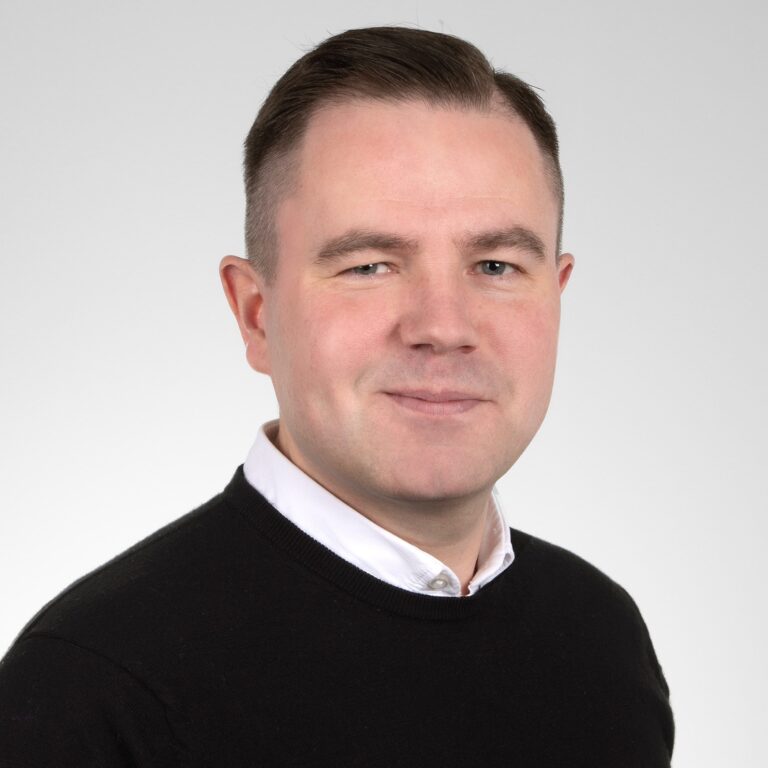Of the professional roles relating to queerness in Iceland, perhaps one of the most prestigious is director of Samtökin ‘78. That esteemed baton has now been passed to Kári Garðarsson, who was appointed in July. Three months into his new position, Kári sat down with GayIceland to discuss his hopes and ambitions for the future of Samtökin ‘78, and the lives of queer people who call Iceland their home.
Despite his relatively recent arrival, Kári Garðarsson seems quite at home in the Samtökin ‘78 offices on Suðurgata 3. He bustles around the kitchen fetching water, and calls a cheery goodbye to fellow staff members who are heading home for the day. When asked, he attributes his headstart in the position to spending time with previous director, Daníel E. Arnarson.
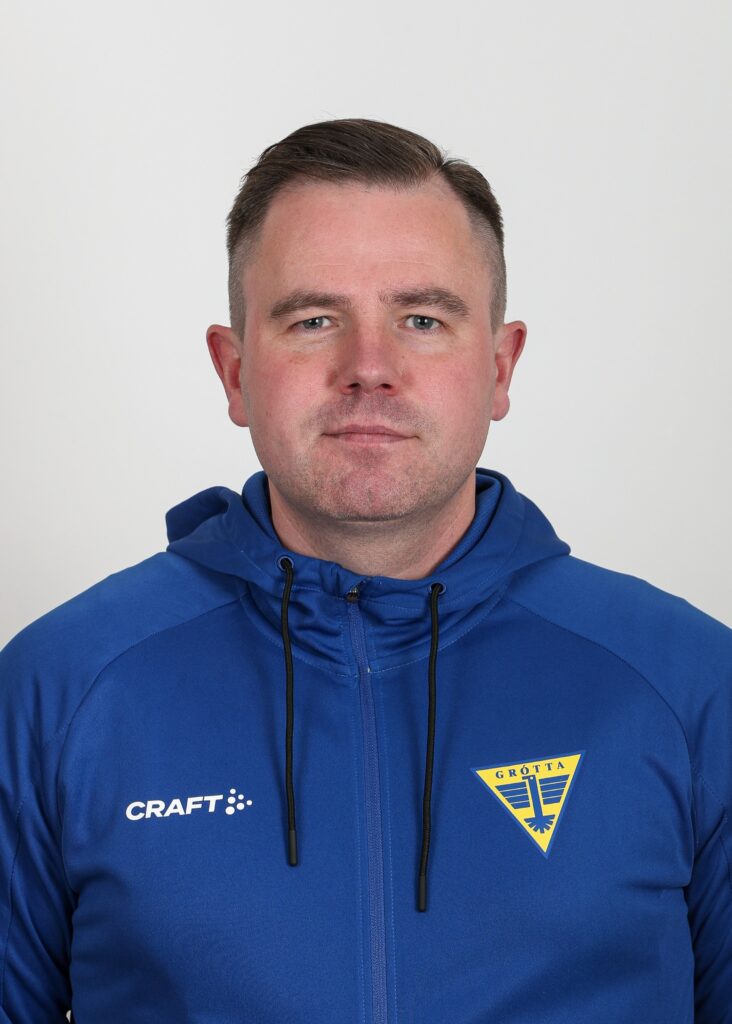
“We had a handover period of about a month,” Kári explains. “It was nice having him here, because he’s been in my role for seven years, working in a sometimes very difficult but also crucial position for the organisation. He did an amazing job, and I’m now trying to fill his shoes.”
The ‘big shoes’ Kári refers to relate to the extensive role that Samtökin ‘78 plays in society in Iceland. The National Queer Association of Iceland is an advocacy organisation, promoting the rights of queer people and injustices they face. But far beyond that, it reaches into almost every corner of civil life—from education, immigration and healthcare to culture, media and justice. Wherever queer people require support and championing, Samtökin ‘78 seeks to represent them.
Broad Connections
Kári admits that the extent of the spread of activities that Samtökin ‘78 is involved in took him aback.
“I was perhaps surprised by the sheer quantity of things that the organisation was working on,” he confesses. “But of course we’re so connected to everything. For instance, queer people need to access hospitals like everyone else, but our experience there is often different from heterosexual and cisgender people in the same environment.”
“One of my first meetings was with prison authorities,” he continues. “Which felt strange. Of course, queer people can go to prison, but it was still a bit surreal to be in that meeting, having just come from a completely different type of job and work environment.”
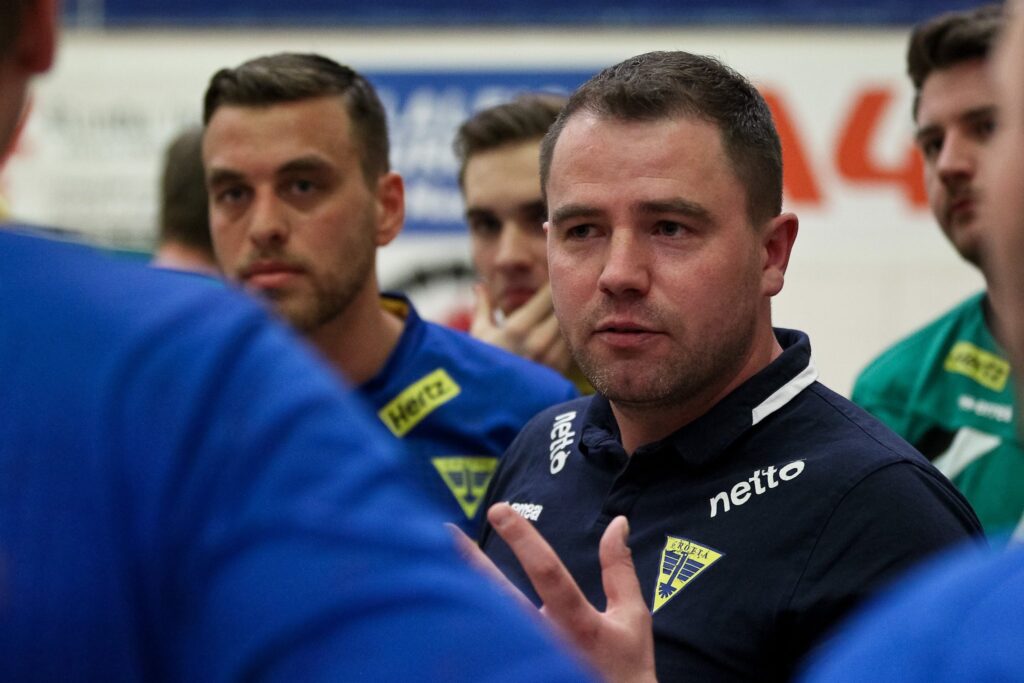
An Introduction to Samtökin ’78
The previous work that Kári is referring to is as the manager of Íþróttafélagið Grótta. Kári’s background is strongly rooted in sports: he started out as a talented handball player before going on to become a sought-after coach. But when Kári was growing up in his hometown of Akureyri, he was deeply concerned that his sexuality would not be accepted in the traditionally heterosexual environment of the sporting world.
“I waited a long time to come out—fortunately, not longer than until I was 27,” says Kári. “I knew I was queer since I was a teenager. But back then I didn’t have many role models, especially in Akureyri or in handball.”
Kári confides that he even considered pretending to be straight in order to be able to continue playing handball.
“I was thinking, ok, I can just be tough and find a girl and get married and have some children,” he says. “I loved–and still love–handball, but at the time I thought, maybe I need to quit, just to be happy and not living a life of lies.”
Thankfully, moving to Reykjavík helped ease the pressure and provided Kári with more examples of openly queer people living normal, happy lives. He also remembers visiting the offices of Samtökin ‘78 prior to his coming out, which he credits with helping to build his confidence to be more open with his identity.
I loved–and still love–handball, but at the time I thought, maybe I need to quit, just to be happy and not living a life of lies.
“I remember the office on Laugavegur, which was on the third floor with almost no signs outside,” Kári says. “I used to attend open houses and visit the library there. I’d go in, looking over my shoulder to make sure no one saw me. Back then, there might have been one person working part-time, maybe 50%. Now we are a team of seven—that’s a huge change.”
“Progress Has Been Too Slow”
Although his story had a happy ending, looking back on his early experiences as a gay man in sports from his current position as director of the country’s biggest queer organisation, Kári feels he may have some, “processing to do.”
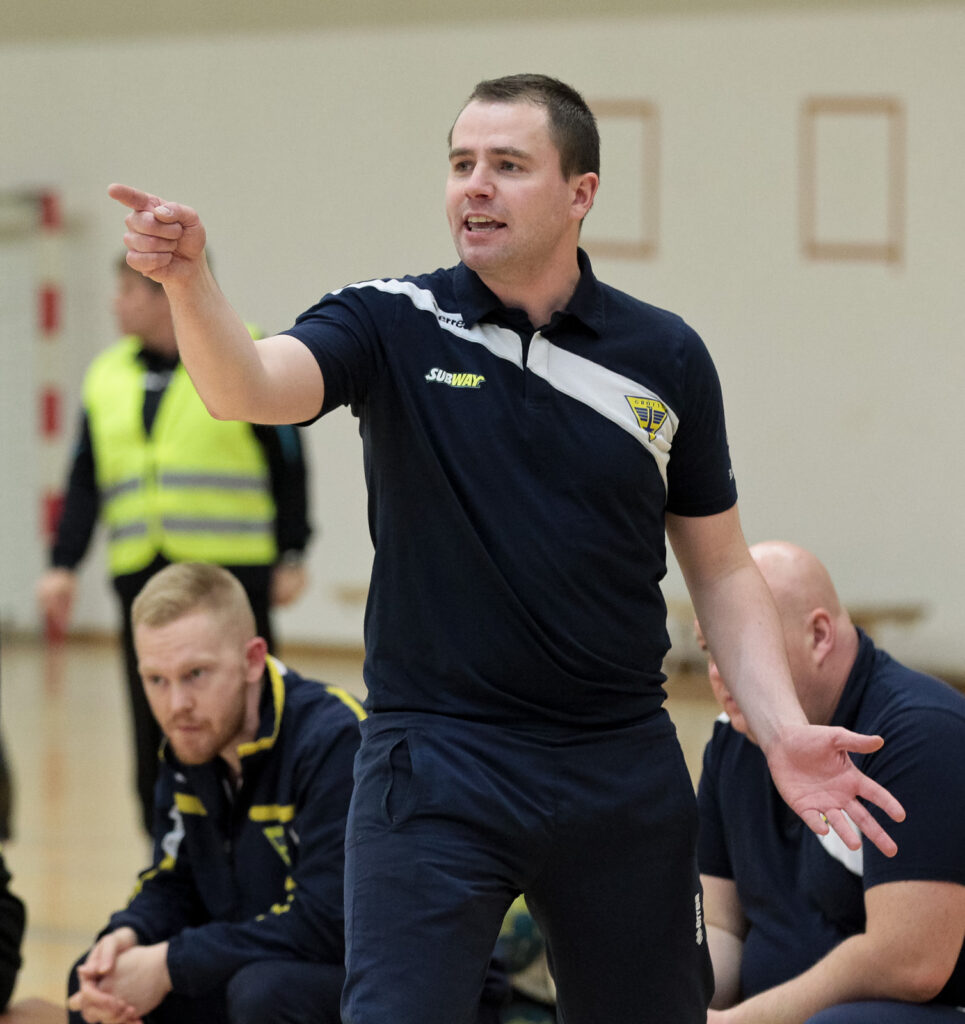
“Coming out was better than I expected,” he explains. “I feared I would have to quit handball, but I didn’t. I continued to play and coach, and I was just happy to belong. But looking back, I wonder if the way I was treated was really okay. People said things to me that they wouldn’t have said to a straight person, but at the time, I was just happy to be included.”
In general, Kári is disappointed with the lack of change he has seen in sports since the time he came out.
“I thought after ten years, sports would be in a better place for queer people, but it hasn’t changed as much as I hoped,” he says, with clear dissatisfaction. “It’s less toxic now, but it’s still not where it needs to be. Sports need to be a safer space for everyone. Women, for example, are still paid less and get worse coaches than men. Progress has been too slow.”
I thought after ten years, sports would be in a better place for queer people, but it hasn’t changed as much as I hoped. It’s less toxic now, but it’s still not where it needs to be.
Thankfully, his expertise and connections in this area are something he can now bring to his role at Samtökin ‘78, with the goal of increasing education, awareness and support for queer people and allies in the sporting community.
“We’re currently finishing a brochure to send to sports clubs on how to handle situations when someone comes out as queer, addressing issues like locker room etiquette,” Kári says proudly. “This is my past, you know? I have a passion for it to be better.”
Making Changes
Beyond the work with sports centres, Kári is excited and ambitious for the future of Samtökin ‘78–although he acknowledges the challenges that both the organisation, and queer people in general, continue to face.
One of the first things on the new director’s agenda is expanding Samtökin ‘78’s outreach to older generations, allowing them to meet the needs of this important–and growing–demographic.
“We’re working on building better connections with older queer people, those 60 and above. They’ve been somewhat disconnected from our organisation,” says Kári. “We’re also facing the challenge of older queer people going into retirement homes and potentially needing to go back into the closet because the staff aren’t trained to support them. That’s something that needs our attention.”
Kári also cites adding relevant information regarding queer needs to both doctors’ and teachers’ education as key concerns for him. “Progress is being made in this area, but we would like to see more,” he states. “It shouldn’t be a one-hour optional lecture—it should be integrated into their training.”
Thoughts for the Future
The past few years have been a rollercoaster of emotions for the queer community, in Iceland and beyond. In a time where queer people have more rights than ever globally, we have also witnessed incidents that indicate a serious backlash, from far right-wing, vocally anti-queer politicians winning landslide victories, to violent attacks on queer people and spaces.
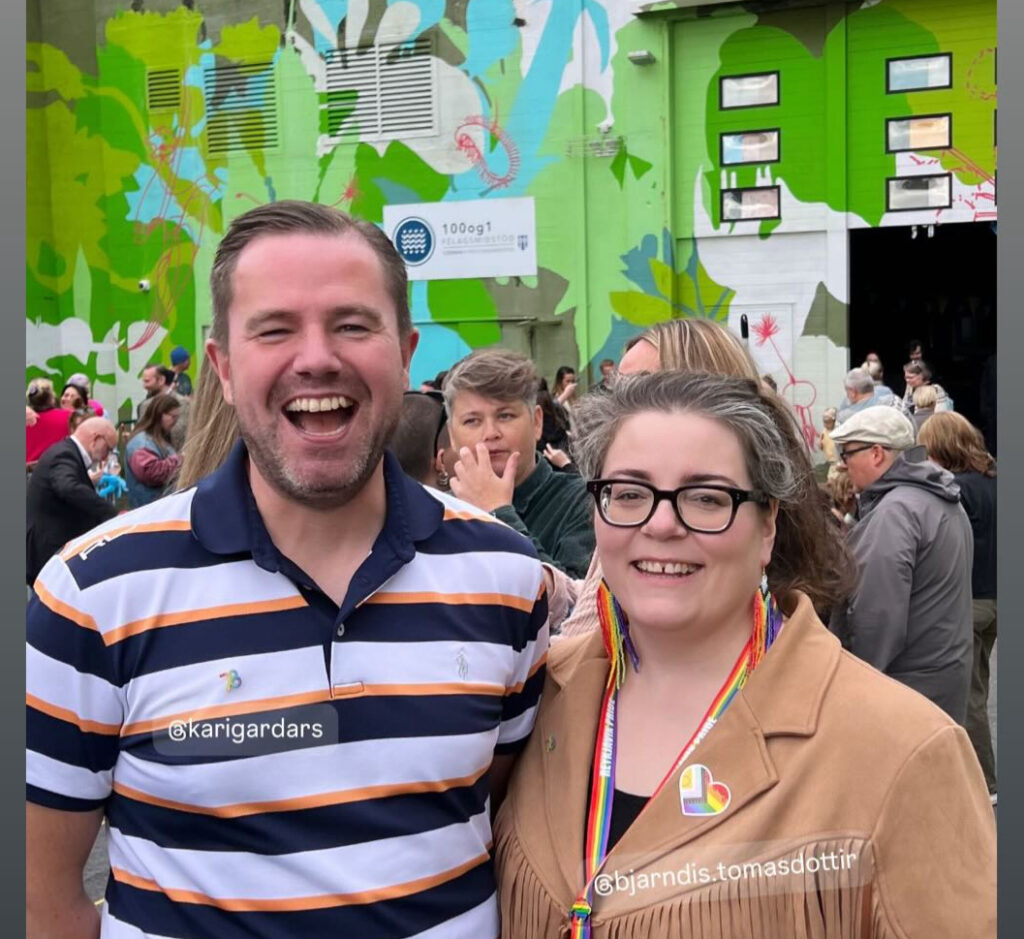
It’s something that Kári does not shy away from, although he acknowledges that Iceland is in a much luckier position than some.
“Iceland is privileged in many ways. We’ve avoided some of the far-right movements affecting other countries,” he says. “We had a visit from some Slovenians and they talked about the attacks on their Pride parades. We’re a bit worried about those trends, but they haven’t reached us yet to the same extent, and we’re determined to fight them if they do.”
In order to protect Iceland from developing similar movements that would erode the safety of queer individuals, Kári feels that policies have to be strengthened to protect the most vulnerable.
“We want Iceland to rank first on the ILGA map,” he states. “We’re currently second, and we’ve made great progress, moving from 15th place just a few years ago. Politicians and the government have supported us in changing regulations, but there’s still work to do, especially regarding hate speech, asylum seekers and the rights of intersex people.”
Politicians and the government have supported us in changing regulations, but there’s still work to do, especially regarding hate speech, asylum seekers and the rights of intersex people.
Despite the hard work that remains to be done, Kári sees the potential of Iceland to be world-leading in regards to the rights and lives of queer people.
“We are in a unique place,” he divulges. “We’re a small country but people look to us and ask, ‘how can we learn from them?’ That’s a big role for us to fill.”
He adds: “It’s quite strange to walk into a meeting with representatives from much larger countries and be aware that we are a role model, or a trendsetter even. That’s something we can be proud of.”

